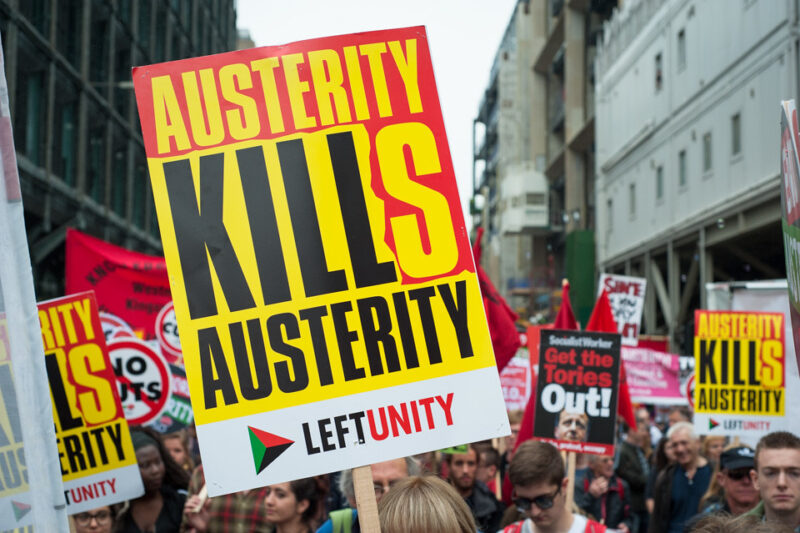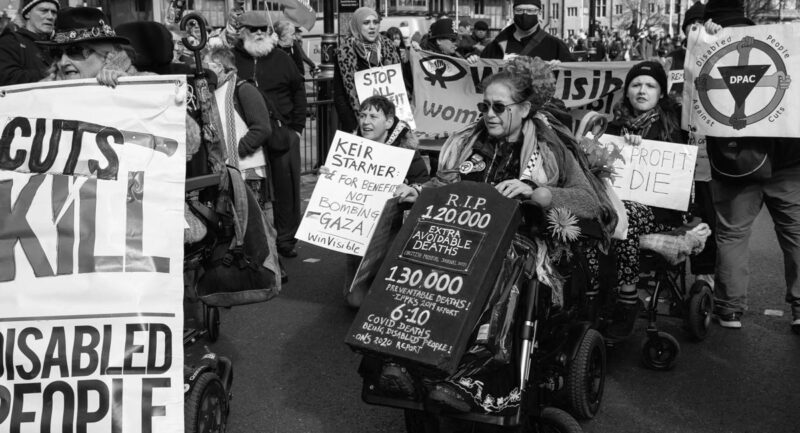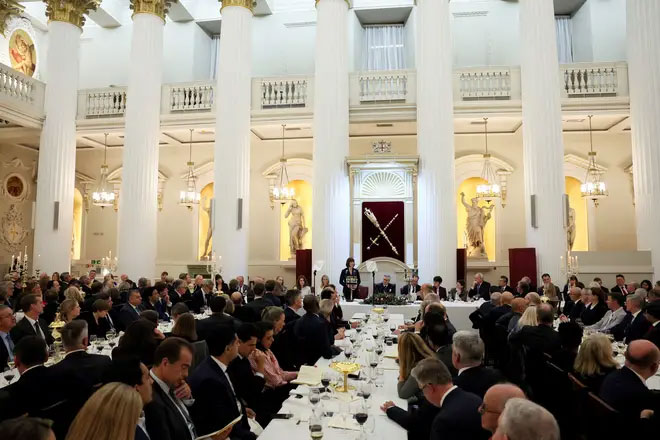What the riots reveal about Britain
Jeremy Dewar argues that August’s disturbances were not ‘criminality pure and simple’ but a youth uprising against police racism, poverty and social oppression
THE SHOCK was felt by everybody. The speed with which the fighting against the police and the rioting spread from district to district and town to town, the ferocity of the youth burning down shops and firebombing police stations, and the size of the uprising – the Met claim 30,000 participated in “criminal acts” in London alone, while many more looked on and “got in the way” – took politicians, journalists and police chiefs completely by surprise.
But if the exact form and precise timing this rebellion took were unpredictable, the underlying causes of youth alienation made it inevitable. Capitalism and the generational cycles of poverty and social alienation were the material for the explosion, police violence was the detonator.
Alienation
Police racism, the immediate cause of the uprising, is rampant. Since 1990, 1,410 people have died while police were present, a large number of these being black, like the recent cases of Smiley Culture, Demetre Frazer and of course Mark Duggan.
Stop and search powers are routinely used to humiliate and harass black youth. In 2008-09, police stopped and searched people an incredible 1,469,041 times. Recent research by the LSE and Open Society Justice Initiative found that black people are 26 times more likely to be stopped than whites. Yet arrest rates remain marginal: roughly one in 50.
In short, a whole generation of youth are subjected to daily ‘in-your-face’ policing.
Add to this the fact that one in five young people – a million under-25s – are unemployed. The Catch-22 of not having work experience keeps this group at the very bottom of the labour market.
Benefits are being cut in real value, while Iain Duncan Smith’s Flexible New Deal forces the young unemployed to work 30 hours a week for free – or have their benefits cut for at least three months. These four-week stints of slave labour can be repeated endlessly at the discretion of the DWP. Working like this whilst on benefits is the equivalent of being paid £2.25 an hour, less than half the minimum wage.
And which companies benefit from this “something for nothing” culture? Why, the likes of Tesco and Primark, the apparently “innocent” victims of looting and arson.
With the abolition of the Education Maintinance Allowance (EMA), a £30 a week grant for 16-18 year old students, and the tripling of university fees, many working class youth are increasingly priced out of further and higher education. Courses are being cut as local colleges (and schools) face year on year budget cuts of around 10 per cent. As many as 200,000 applicants will lose out on a university place this year in the rush to beat fee rises.
Add to this other related factors and the picture of a generation with no stake in capitalist Britain emerges.
• Social housing is dilapidated due to years of underfunding and is in chronic shortage – up to a third of council flats are unfit for habitation in inner cities.
• 2.6 million children are living in poverty in Britain – 20 per cent, though this rises to 50 per cent in deprived areas.
• Over £100 million has been cut and 3,000 workers sacked from youth services this year. Many councils have closed or severely reduced services at youth clubs, as budgets have been cut by 70 per cent to 100 per cent (Swindon, for example). Even in Cameron’s constituency, youth workers went on strike to save jobs and services.
Haves and have-nots
David Cameron’s callous retorts that this was “criminality pure and simple” and that “pockets of our society” are “frankly sick” were exposed for what they are: class hatred.
He knows that the wealth gap is widening at every point: by age, by gender, by north-south, but most of all by class. While average incomes fell by 3 per cent this year, the richest thousand people saw their wealth increase by 30 per cent to £333.5 billion.
Cameron complains that there is “a complete lack of responsibility in parts of our society, people allowed to feel the world owes them something, that their rights outweigh their responsibilities and their actions do not have consequences. Well, they do have consequences.”
Rubbish. What is sick about Tory Britain is the system, which takes from the poor and gives to the rich; the bankers and bosses, who have taken no responsibility and shown no remorse for the credit crunch and ensuing recession; the ConDem government, which demands the working class pays for the crisis of their system with savage cuts; the justice system which locks up someone for 20 months for stealing a t-shirt, but lets off the policeman who dragged activist Jody McIntyre from his wheelchair. There is no justice in Britain when it comes to workers and youth seeking redress against the state.
Of course criminal gangs moved in to loot shops, burn down buildings, including people’s flats, and mug passers-by. Socialists and workers do not defend these thugs and killers – indeed our communities have organised to isolate and eject them for years. However, not everybody who looted was a criminal, let alone all those dragged before kangaroo courts in the early hours of the morning. The attempt to brand every participant a criminal is intended to erase from memory the real causes of the uprising. That we must resist.
On the contrary, the abandonment of legal norms – all night sittings, scant rights to defence, collective punishment – proves that the ruling class recognise this as a political uprising. The “exemplary” sentences, like those meted out to students last year and activists after 26 March, are designed to frighten people from fighting back: shut up and do as you’re told or we’ll clobber you.
Labour movement
But the clampdown will not inevitably succeed. Only if we retreat to our private lives isolated from our communities – our class – will repression take hold. To prevent this, we need to offer working class youth an alternative future, based on class struggle, solidarity and revolutionary goals.
One of the main reasons why the youth uprising happened in the way it did was the near complete absence of a working class party on our estates, in our schools and colleges, in the workplaces where youth are concentrated – retail, services, agency work, etc. – or among the unemployed. To focus this anger and rage on more productive targets than Cash Converter and Foot Locker, we need to redress this failing of the labour movement, especially the trade unions.
Unite has opened its doors to the unemployed, offering membership at a very reduced rate. Good, the other general unions should follow. They should also launch a unionisation drive, penetrating the anti-union mega-corporations, the private sector, employment agencies and the grey economy, where even the minimum wage is denied. Here only bold actions – lightning strikes and occupations – will succeed. And the youth have shown they have boldness in buckets.
More than this though, we need to establish a working class party and socialist youth movement with deep roots on the estates and in the schools and colleges. The Labour Party has shrivelled to a wizened husk in these areas. It shut down its 10,000 strong youth section in the late 1980s because it was “too radical”.
Only a radical anticapitalist party would be able to inspire the youth and harness their boundless energy to the task of creating a new society. But the Labour leadership refuses to adopt the policies and direct action methods – strikes, occupations, demos – that could reverse its decline for fear of alienating the middle classes.
So long as the Labour Party remains the major electoral party of the working class, we should demand its MPs and councillors vote against and reverse all the cuts, fight for and implement budgets based on the people’s needs and support every strike and action against austerity. So long as our unions remain affiliated to Labour (and provide 85 per cent of its funding), they should use their position to demand its support and to launch a new, mass and independent youth organisation.
But it would be foolish in the extreme to rely on Labour making such a turn. It will only move to the left if pushed from below – and even then it would hesitate, drag backwards and ultimately betray the youth. That’s why anticuts groups, community organisations and ad hoc committees should start this work ourselves and ensure that the uprising of 2011 marks one more step – after the student rebellion of 2010 and the mass union mobilisations of 26 March and 30 June – towards throwing out this government. More than this we have to inspire a fight for a new world, one without racism and poverty.










